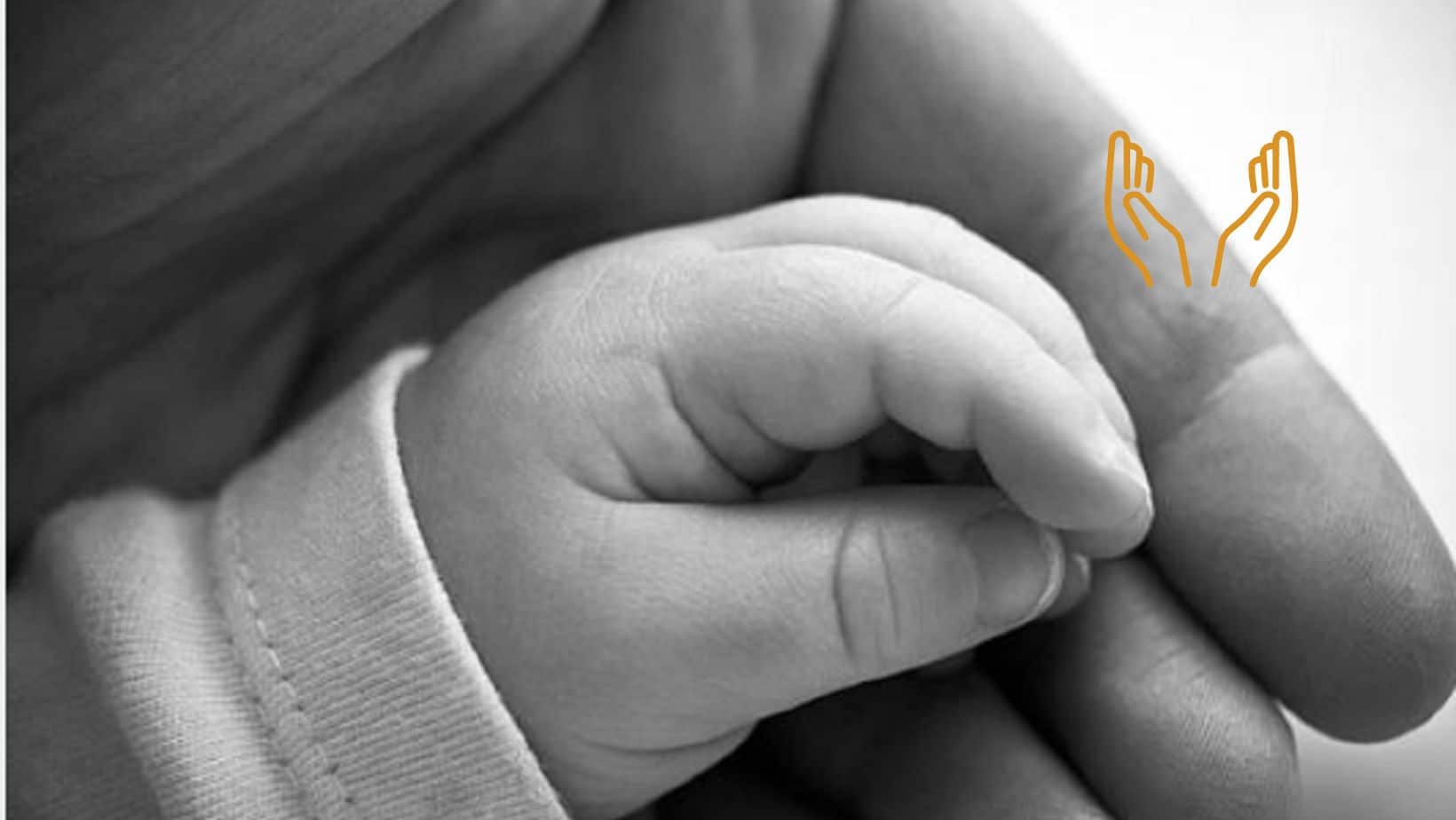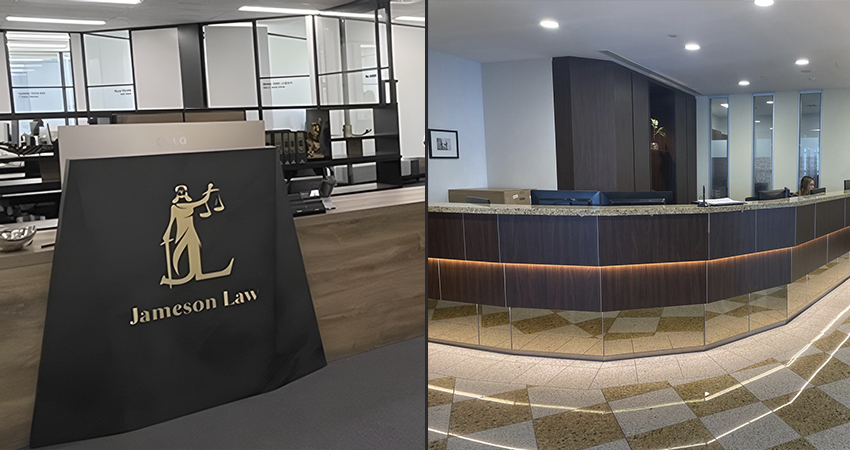CARE AND PROTECTION LAWYER
WE GET IT
WE'RE IN IT TO WIN IT
Book your consultation
- This form submission is encrypted and secured to ensure your information remains confidential.
This form submission is encrypted and secured to ensure your information remains confidential.
Our care and protection lawyers work tirelessly to reunite wrongfully separated families.
Award-Winning Compensation Law Firm
We have won several awards including APAC’s coveted Best Personal Injury Law Firm Australia 2025.
Proven Track Record
50+ Years of Combined Experience litigating Personal Injury Cases means a successful outcome is on the table.
5 Star Reviews Everywhere
We’re in it to win it and we fight hard for our clients. That’s why anywhere you look you will find 5 star reviews.
No Win No Fee Guarantee
Our No Win No Fee guarantee includes all disbursements. Your payout will always significantly outweigh our legal fees.
Award-Winning Compensation Law Firm
We have won several awards including APAC’s coveted Best Personal Injury Law Firm Australia 2025.
Proven Track Record
50+ Years of Combined Experience litigating Personal Injury Cases means a successful outcome is on the table.
5 Star Reviews Everywhere
We’re in it to win it and we fight hard for our clients. That’s why anywhere you look you will find 5 star reviews.
No Win No Fee Guarantee
Our No Win No Fee guarantee includes all disbursements. Your payout will always significantly outweigh our legal fees.
Our lawyers understand very clearly that there are very few things in life that are more difficult than having your children removed or involved in children’s court proceedings with the Department of Community & Justice. Our lawyers will show you the empathy and support your need, whilst using their expert knowledge of the law to obtain the best possible outcome for your family.

Engaging Care and Protection Lawyers
Care and Protection Legal Aid Panel

In a nutshell...
Legal Aid funding may be applied for in relation to care and protection matters.
There are certain requirements that you need to meet(mostly in relation to your income and property holdings) to qualify for Legal Aid.
Children’s Court Orders in care and protection matters
The Children’s Court will often make orders to ensure the safety, welfare and wellbeing of a child or young person. In broad terms, proceedings of this kind relate to intervention by the agency with responsibility for child welfare in New South Wales, the New South Wales Department of Communities and Justice (“the Department”) (the government organisation formerly referred to as DOHS, DOCS or Family and Community Services). In care and protection cases, the Secretary for the Department of Communities and Justice will be referred to in the application to the Court. The conduct of matters in the Children’s Court in its care jurisdiction is guided in the laws, regulations, rules and Practice Notes for that are particular to the jurisdiction. Before the court makes an order, DCJ must submit a care plan. As far as possible a care plan should be made with the agreement of the child or young person and their family. The Children’s Court take into account interests of any siblings of the child to which the care plan relates in determining what orders are made, often looking into expert assessments of the Children’s Court Clinic. Care and Protection proceedings in New South Wales are conducted in the Children’s Court of NSW in the first instance. The act governing such proceedings is the Children and Young Persons (Care and Protection) Act 1998 and accompanying regulations. The Court deals with matters where concerns have arisen regarding the safety, welfare and well-being of a child or children under the age of eighteen (18) years.
Speak to an Expert Lawyer today

WE'RE IN IT TO WIN IT
Book your consultation
- This form submission is encrypted and secured to ensure your information remains confidential.
This form submission is encrypted and secured to ensure your information remains confidential.
What our Clients Say
Trustindex verifies that the original source of the review is Google. Worked with Nora and Cooper both really supportive and great help with my traffic matter highly recommendTrustindex verifies that the original source of the review is Google. I had the pleasure of being represented by Nora Sayeed from Jameson Law, and I couldn’t be more grateful for her support and professionalism throughout my legal matter. From our very first interaction, Nora was attentive, understanding, and thorough in her approach. She took the time to carefully listen to my situation, explained every step clearly, and made sure I felt supported at every stage. What stood out the most was her dedication and prompt action. Thanks to her efforts, we were able to successfully withdraw the charge before it even reached the hearing stage. Nora’s expertise, compassion, and calm demeanor made a stressful situation far more manageable. I truly appreciated how she went above and beyond to ensure a positive outcome. I highly recommend Nora to anyone in need of reliable and empathetic legal representation.Trustindex verifies that the original source of the review is Google. Reduced my suspension to 3wks from 3months.. for serious speeding charge. Amazing lawyers nora and cooperTrustindex verifies that the original source of the review is Google. I highly recommend Nora and the team at Jameson Law. Nora is professional, courteous, hard working and diligent. I cannot Thank you enough for our positive outcome. I recommend this firm 100%. A big shout out to Nora and Cooper. Keep up your professionalism. Would not go to anyone else for my legal matters. From the bottom of my heart THANKYOU.Trustindex verifies that the original source of the review is Google. Excellent service would recommend to othersTrustindex verifies that the original source of the review is Google. Nora and Cooper, what a team. Nora , you are absolutely beautiful and super intelligent.If you get in trouble Nora and Cooper are the team to help you.Such professionalism and style. Thank you both so very much.God bless you both.Trustindex verifies that the original source of the review is Google. Nora Sayed’s representation in April 2025 was outstanding. Jameson Law has a brilliant, knowledgeable Lady in their employment. The outcome was nothing short of a miracle. Nora achieved this! I thank her & wish her all the success in her Career. I would recommend Nora & Jameson Law without hesitation. Well done Thanks again. 👏🏼👏🏼😊Trustindex verifies that the original source of the review is Google. I had the pleasure of working with Nora Sayed for a legal matter, and I cannot recommend her highly enough. From the very beginning, Nora proved to be not just a knowledgeable and skilled attorney, but also someone who genuinely cares about her clients. What truly sets Nora apart was her dedication and commitment to ensuring the best possible outcome. She was always available to answer my questions, even after hours, and she was consistently responsive and approachable. Nora took the time to speak with my family, addressing their concerns and providing reassurance every step of the way, especially after hours. This level of personalized attention and care is rare to find in the legal field. Throughout the process, Nora's expertise and strategic thinking were invaluable. She made sure I understood my options, walked me through every detail, and provided guidance that gave me confidence in the decisions I was making. It was clear to me that Nora was invested in not just achieving a good result, but in helping me navigate a difficult situation with as much peace of mind as possible. I found her also very kind and compassionate. She truly goes above and beyond for her clients, and I am incredibly grateful for all the hard work she put into my case. Thanks to Nora, I had the best possible outcome, and I will forever be thankful for her support. Thank you, Nora, for everything you did!
Related Family Law News and Resources
FAQs
Frequently Asked Questions.
Care and protection cases commence by way of filing of an application at a Children’s Court registry.
Once an application is filed, the proceedings must be listed within three days before a Children’s Court.
The Department is a party to all proceedings in the care and protection jurisdictions. .
Ordinarily, the parties to the proceedings will be:
The Department;
The parent or parents of the child;
The child’s representative.
A person who can show a genuine concern and interest in the safety, welfare and well-being of a child may apply to become a party to the proceedings. That is an application is not automatically granted and there are tests under the legislation that need to be met before someone is joined as a party.
If a child or young person is living with someone other than a parent or parents, it may be that the person who was caring for the child immediately prior to the proceedings commencing is also a party, but that will depend on the circumstances of the matter.
The proceedings are not the same as Family Law matters, although they deal with the interests of children and family dynamics. The Family Court usually deals with private matters and disputes between families, in general terms, the care and protection jurisdiction usually deals with matters concerning the State and the family.
The Department may elect to intervene in Family Law proceedings also but that is a separate jurisdiction and discrete from care and protection proceedings.
The focus of the proceedings is the safety, welfare and well-being of the child or children the subject of the proceedings. The Court has the ability to make numerous types of orders and findings concerning children, including, but not limited to the following:
a. Interim care orders – orders that operate until they are varied by the Court (changed) or final orders are made. Interim orders may deal with issues of short-term parental responsibility and other matters including orders for supervision.
b. Orders accepting undertakings – undertakings are effectively promises to the Court to undertake or not do certain things. A breach of undertaking can result in proceedings being re-listed.
c. Orders for supervision – that is supervision of a child/children.
d. Orders allocating parental responsibility for a child or young person on a final basis – often referred to as the making of Final Orders.
e. Contact orders – these are orders regarding the time a child spends with a parent, sibling, other relative, or family members. Contact orders are not available in circumstances where the Department or the government agency with case management is to facilitate and coordinate contact for the child and their family.
f. Guardianship Orders – generally, these are orders allocating parental responsibility for a child to a family member as an alternative to allocating parental responsibility to the Minister.
The Court’s primary function is to consider how the safety, welfare and well-being of the child or children the subject of the proceedings may be best served through the orders the Court is capable of making.
The other functions of the Court involve numerous considerations – such as whether a child in long term out of home care should have contact with her or her birth parents and what that contact might look like – for example, will it be supervised and if so, by whom?
The Court is also tasked with determining parental responsibility – that is, who should make decisions of the child or children if their parents are not found presently to provide adequate care for them.
We use the term “out of home care” as the proper term that is used to refer to a child who is placed with authorised carers. You might be more familiar with the term “foster care”.
The primary focus of court proceedings is child protection: considering the safety, well-being, and welfare of the child, children, or young persons, making sure they’re kept from any serious harm.
At first instance, care and protection disputes are heard by a Magistrate in the Children’s Court. The Magistrate is referred to as “Your Honour” in the proceedings.
Family Law Success Stories
Our client is a 25-year-old man who was the holder of an unrestricted Class C (driver’s) licence and a P1
Our client is a 64-year-old man who had no criminal history. In 2012, he was diagnosed with HIV and was
Our client is a 41-year-old male who was charged with one count of ‘assault occasioning actual bodily harm’ against his
In October 2023, we appeared in Campbelltown District Court on behalf of a 32-year-old man charged with two counts of
Partner SC309 and permanent Partner SC100 simultaneously after claims for domestic violence Congratulations to our client who was granted both
Our solicitor, Mr. Christopher Alis, represented a 19-year-old mother in the Federal Circuit and Family Court of Australia. The 19-year-old
Our solicitor, Mr Wissam Philopos represented a man at Parramatta District Court in relation to a District Court Appeal. The
There’s nothing more satisfying than winning a life changing case for a client. Though this thank you cake was definitely
Our Solicitor, Nicholas Hardy-Clements, represented a 40-year-old man at Parramatta Local Court in relation to a common assault domestic violence
Our Solicitor, Wissam Philopos, represented a 39-year-old man at Sutherland Local Court in relation to two serious offenses. These offenses
Emergency Bail Application Request I received a call on the evening of Sunday 28 August 2022 from an unknown number.
Common Assault (Domestic Violence related) matter dismissed Our Solicitor, Nicholas Hardy-Clements, represented a 68-year-old man at Wyong Local Court in
WE'RE IN IT TO WIN IT
Book your consultation
- This form submission is encrypted and secured to ensure your information remains confidential.
This form submission is encrypted and secured to ensure your information remains confidential.
OUR SYDNEY OFFICES
Parramatta CBD - Head Office
- (02) 8806 0866
- 0488 817 882
- 02 9052 0840
- info@jamesonlaw.com.au
- Suite 301, 67-69 Philip St Parramatta NSW 2150
Sydney CBD - Practice Office
- 02-8806-0866
- 0488 817 882
- 02 9052 0840
- info@jamesonlaw.com.au
- Tower One Barangaroo International Towers Level 35, 100 Barangaroo Ave Sydney NSW 2000
Blacktown CBD - Practice Office
- (02) 8806 0866
- 0488 817 882
- 02 9052 0840
- info@jamesonlaw.com.au
-
Level 3 81 Flushcombe Road, Blacktown NSW 2148
(By Appointment Only)

Liverpool CBD - Practice Office
- (02) 8806 0866
- 0488 817 882
- 02 9052 0840
- info@jamesonlaw.com.au
-
Level 2, 215-219 George Street, Liverpool NSW 2170
(By Appointment Only)

Bankstown CBD - Practice Office
- (02) 8806 0866
- 0488 817 882
- 02 9052 0840
- info@jamesonlaw.com.au
-
23 Restwell Street, Bankstown NSW 2200
(By Appointment Only)



Court Houses We Frequent
Local Courts
Balmain Local Court
- 1300 679 272
- local-court-burwood@justice.nsw.gov.au
- 368 Darling Street, Balmain NSW 2041
Registry: Monday to Friday, 9:00am to 4:30pm
Bankstown Local Court
- 1300 679 272
- (02) 9722 6060
- PO Box 71 BANKSTOWN NSW 2200
- local-court-bankstown@justice.nsw.gov.au
- Cnr Chapel Road and The Mall BANKSTOWN NSW 2200
Court Operating Hours: 9:30am-4:30pm
Blacktown Local Court
- 1300 679 272
- (02) 9672 2666
- PO Box 217 BLACKTOWN NSW 2148
- local-court-blacktown@justice.nsw.gov.au
- 1 Kildare Road Blacktown NSW 2148
Registry Hours: 9:00 – 4:30
Telephone Hours: 8:30 -4:30
Days open: Mon-Fri
Burwood Local Court
- 1300 679 272
- (02) 9744 4144
- PO Box 235 BURWOOD NSW 1805
- local-court-burwood@justice.nsw.gov.au
- 7-9 Belmore Street BURWOOD NSW 2134
Registry Hours: 9:00 – 4:30
Telephone Hours: 8:30 – 4:30
Days open: Mon – Fri
Campbell Local Court
- 1300 679 272
- (02) 9821 7888
- PO Box 3435 LIVERPOOL WESTFIELDS NSW 2170
- local-court-campbelltown@justice.nsw.gov.au
- 150 George Street LIVERPOOL NSW 2170
Registry Hours: 9:00 – 4:30
Telephone Hours: 8:30 – 4:30
Days open: Mon – Fri
Central Local Court
- 1300 679 272
- (02) 4223 3633
- PO Box 5395 WOLLONGONG NSW 2500
- local-court-wollongong@justice.nsw.gov.au
- Cnr Market and Church Streets WOLLONGONG NSW 2500
Registry Hours: 9:00 – 1:00 and 2:00 – 4:30
Telephone Hours: 8:30 – 4:30
Downing Local Court
- 1300 679 272
- (02) 4223 3633
- PO Box 5395 WOLLONGONG NSW 2500
- dclc@justice.nsw.gov.au
- 143-147 Liverpool Street, Sydney NSW 2000
- Nearest Train Station: Museum Station (Liverpool Street entrance is directly opposite)
- Levels: Local Court matters are heard on levels 4 and 5.
- Public Transport: Well-served by buses and trains, with easy access to nearby bus stops and Museum Station.
- Parking: Limited street parking is available, and there are several public parking garages nearby.
Registry Hours: 9:00 – 1:00 and 2:00 – 4:30
Telephone Hours: 8:30 – 4:30
Wollongong Local Court
- 1300 679 272
- (02) 4223 3633
- PO Box 5395 WOLLONGONG NSW 2500
- local-court-wollongong@justice.nsw.gov.au
- Cnr Market and Church Streets WOLLONGONG NSW 2500
Registry Hours: 9:00 – 1:00 and 2:00 – 4:30
Telephone Hours: 8:30 – 4:30
Fairfield Local Court
- 1300 679 272
- (02) 4223 3633
- PO Box 5395 WOLLONGONG NSW 2500
- local-court-wollongong@justice.nsw.gov.au
- Cnr Spencer St & Court Rd, Fairfield NSW 2165
Registry Hours: 9:00 – 1:00 and 2:00 – 4:30
Telephone Hours: 8:30 – 4:30
Hornsby Local Court
- 1300 679 272
- (02) 9847 9955
- PO Box 96 HORNSBY NSW 1630
- local-court-hornsby@justice.nsw.gov.au
- 294 Peats Ferry Rd HORNSBY NSW 2077
Registry Hours: 9:00 – 1:00 and 2:00 – 4:30
Telephone Hours: 8:30 – 4:30
Liverpool Local Court
- 1300 679 272
- (02) 9722 6060
- PO Box 71 BANKSTOWN NSW 2200
- local-court-bankstown@justice.nsw.gov.au
- Cnr Chapel Road and The Mall BANKSTOWN NSW 2200
Registry Hours: 9:00 – 1:00 and 2:00 – 4:30
Telephone Hours: 8:30 – 4:30
Manly Local Court
- 1300 679 272
- (02) 9722 6060
- PO Box 71 BANKSTOWN NSW 2200
- local-court-bankstown@justice.nsw.gov.au
- Cnr Chapel Road and The Mall BANKSTOWN NSW 2200
Registry Hours: 9:00 – 1:00 and 2:00 – 4:30
Telephone Hours: 8:30 – 4:30
Newtown Local Court
- 1300 679 272
- (02) 9722 6060
- PO Box 71 BANKSTOWN NSW 2200
- local-court-bankstown@justice.nsw.gov.au
- Cnr Chapel Road and The Mall BANKSTOWN NSW 2200
Registry Hours: 9:00 – 1:00 and 2:00 – 4:30
Telephone Hours: 8:30 – 4:30
Parramatta Local Court
- 1300 679 272
- (02) 4223 3633
- PO Box 92 Parramatta NSW 2150, Australia
- local-court-parramatta@justice.nsw.gov.au
- 12 George Street Parramatta NSW 2150, Australia
Registry Hours: 9:00 – 1:00 and 2:00 – 4:30
Telephone Hours: 8:30 – 4:30
Penrith Local Court
- 1300 679 272
- (02) 9722 6060
- PO Box 71 BANKSTOWN NSW 2200
- local-court-bankstown@justice.nsw.gov.au
- Cnr Chapel Road and The Mall BANKSTOWN NSW 2200
Registry Hours: 9:00 – 1:00 and 2:00 – 4:30
Telephone Hours: 8:30 – 4:30
Sutherland Local Court
- 1300 679 272
- PO Box 37, Sutherland 2232
- local-court-sutherland@justice.nsw.gov.au
- Cnr Flora and Belmont Street, Sutherland NSW 2232
Registry Hours: 9:00 – 1:00 and 2:00 – 4:30
Telephone Hours: 8:30 – 4:30
Waverley Local Court
- 1300 679 272
- (02) 9722 6060
- PO Box 71 BANKSTOWN NSW 2200
- local-court-bankstown@justice.nsw.gov.au
- Cnr Chapel Road and The Mall BANKSTOWN NSW 2200
Registry Hours: 9:00 – 1:00 and 2:00 – 4:30
Telephone Hours: 8:30 – 4:30
Windsor Local Court
- 1300 679 272
- (02) 9722 6060
- PO Box 71 BANKSTOWN NSW 2200
- local-court-bankstown@justice.nsw.gov.au
- Cnr Chapel Road and The Mall BANKSTOWN NSW 2200
Registry Hours: 9:00 – 1:00 and 2:00 – 4:30
Telephone Hours: 8:30 – 4:30
Wollongong Local Court
- 1300 679 272
- (02) 9722 6060
- PO Box 71 BANKSTOWN NSW 2200
- local-court-bankstown@justice.nsw.gov.au
- Cnr Chapel Road and The Mall BANKSTOWN NSW 2200
Registry Hours: 9:00 – 1:00 and 2:00 – 4:30
Telephone Hours: 8:30 – 4:30
District Courts
Downing Centre District Court
- 1300 679 272
- PO Box 71 BANKSTOWN NSW 2200
- downingcentredc@justice.nsw.gov.au
- 143-147 Liverpool Street, Sydney NSW 2000
Registry Hours: 9:00 – 4:30
Telephone Hours: 8:30 – 4:30
Days open: Mon – Fri
Parramatta District Court
- (02) 8688 7777
- local-court-bankstown@justice.nsw.gov.au
- 12 George Street, Parramatta NSW 2150
Registry Hours: 9:00 – 4:30
Days open: Mon-Fri
Penrith District Court
- 1300 679 272
- local-court-penrith@justice.nsw.gov.au
- 64-72 Henry Street, Penrith NSW 2750
Registry Hours: 9:00 – 4:30
Days open: Mon-Fri
Campbelltown District Court
- 1300 679 272
- local-court-campbelltown@justice.nsw.gov.au
- Railway Street, Campbelltown NSW 2560
Registry Hours: 9:00 – 4:30
Days open: Mon – Fri
Liverpool District Court
- 1300 679 272
- local-court-liverpool@justice.nsw.gov.au
- 150 George Street, Liverpool NSW 2170
Registry Hours: 9:00 – 4:30
Days open: Mon – Fri
Wollongong District Court
- 1300 679 272
- local-court-wollongong@justice.nsw.gov.au
- 97-99 Market Street, Wollongong NSW 2500
Registry Hours: 9:00 – 1:00 and 2:00 – 4:30
Telephone Hours: 8:30 – 4:30
Supreme Courts
Supreme Court New South Wales
- 1300 679 272
- (02) 9230 8025
- (02) 9230 8233
- GPO Box 3 Sydney NSW 2001 Australia
- sc.enquiries@justice.nsw.gov.au
- Law Courts Building 184 Phillip Street Sydney NSW 2000
Registry Hours: 9:00 AM – 4:30 PM
Telephone Hours: 8:30 AM – 4:30 PM
Days Open: Monday to Friday
Federal Court
Federal Circuit and Family Court of Australia
- 1300 352 000
- (02) 9230 8000
- GPO Box 9991, Sydney NSW
- enquiries@fcfcoa.gov.au
- Lionel Bowen, Building, 97/99 Goulburn St, Sydney NSW 2001
Registry Hours: 9:00 AM – 4:30 PM
Telephone Hours: 8:30 AM – 5:00 PM
Days Open: Monday to Friday
Federal Court
- 1300 720 980
- (02) 9230 8020
- GPO Box 9991, Sydney NSW
- enquiries@fedcourt.gov.au
- 97-99 Goulburn St in the heart of the Sydney CBD
Monday to Friday, 8:30 AM – 4:30 PM
High Court
- (02) 6270 6811
- (02) 6270 6868
- Parkes Place, Canberra ACT 2600
- enquiries@hcourt.gov.au
- Parkes Place, Canberra ACT 2600
Monday to Friday, 8:30 AM – 5:00 PM
Specialised Courts
Children’s Court of New South Wales
- 1300 679 272
- (02) 9722 6060
- Cnr Chapel Road and The Mall BANKSTOWN NSW 2200
- PO Box 71 BANKSTOWN NSW 2200
- sc.enquiries@justice.nsw.gov.au
Registry Hours: 9:00 AM – 4:30 PM
Telephone Hours: 8:30 AM – 4:30 PM
Days Open: Monday to Friday
Coroner’s Court New South Wales
- 1300 679 272
- (02) 9230 8025
- (02) 9230 8233
- GPO Box 3 Sydney NSW 2001 Australia
- sc.enquiries@justice.nsw.gov.au
- Law Courts Building 184 Phillip Street Sydney NSW 2000
Registry Hours: 9:00 AM – 4:30 PM
Telephone Hours: 8:30 AM – 4:30 PM
Days Open: Monday to Friday
Industrial Relations Commission of New South Wales
- 1300 679 272
- (02) 9230 8025
- (02) 9230 8233
- GPO Box 3 Sydney NSW 2001 Australia
- sc.enquiries@justice.nsw.gov.au
- Law Courts Building 184 Phillip Street Sydney NSW 2000
Registry Hours: 9:00 AM – 4:30 PM
Telephone Hours: 8:30 AM – 4:30 PM
Days Open: Monday to Friday
Land and Environment Court of New South Wales
- 1300 679 272
- (02) 9230 8025
- (02) 9230 8233
- GPO Box 3 Sydney NSW 2001 Australia
- sc.enquiries@justice.nsw.gov.au
- Law Courts Building 184 Phillip Street Sydney NSW 2000
Registry Hours: 9:00 AM – 4:30 PM
Telephone Hours: 8:30 AM – 4:30 PM
Days Open: Monday to Friday


